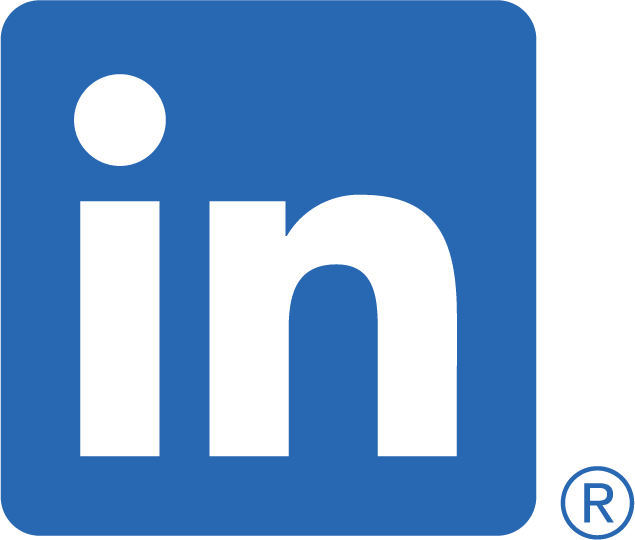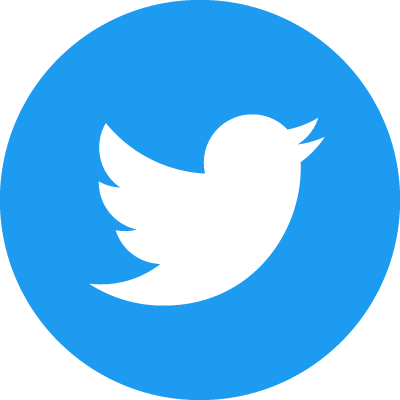Most recruiters have a set list of questions they like to ask candidates during a job interview. While the questions vary depending on the job you’re applying for, one of the most popular and universal questions is about your strengths and weaknesses.
The way you answer this question tells the interviewer a lot about you as a candidate. Answering it well can make the difference between moving to the next stage of the hiring process or being removed from the running.
Listing your strengths can be surprisingly difficult, and telling a recruiter your weaknesses without damaging your candidacy can be even more challenging.
The worst thing you can do is claim you have no weaknesses or “cheat” by giving a made-up weakness that’s actually a positive — and an obvious attempt to sidestep the question. Here are the usual suspects:
- “I try too hard.”
- “I’m a workaholic.”
- “I care too much.”
If you use any of these, your interviewer will be rolling their eyes internally. No one wants to work with someone who lies to them or gives indirect answers.
So, your resume has landed you an interview! What’s the best way to list your strengths and weaknesses when the recruiter or hiring manager asks you? Here’s how to handle this tricky question truthfully without scuttling your chances of landing the job.
Let’s start with 25 strengths and weaknesses you can use at your next interview, and the best way to spin them in your favor.
25 ways to answer the ‘strengths and weaknesses’ question in a job interview
Creating a list of your strengths and weaknesses can help you be prepared when you’re asked about them.
Here’s a list of strengths and weaknesses that can help guide you during a job interview.
Strengths
Let’s start with the strengths. Carefully choose strengths that will tell the recruiter how you made a quantifiable contribution to your former employer. For example, how you increased sales, reduced overhead, or otherwise improved the business.
1. Positive Attitude
Example: “I enjoy my work and know that I can overcome stressful situations. In the past, my peers have said my attitude has helped them through difficult projects.”
Alternative words: optimistic, upbeat, enthusiastic
2. Creative
Example: “I have fun solving problems and presenting concepts in unique and exciting ways. I enjoy bouncing innovative ideas off teammates and am not afraid to try new methods.”
Alternative words: innovative, think outside the box, inventive
3. Dedicated
Example: “I am very passionate and my dedication shows in the work that I do. I give all I can to a project in order to make it the best and help my clients achieve their goals.”
Alternative words: loyal, committed, enthusiastic
4. Strong leadership skills
Example: “I enjoy helping my team meet their goals and delegate roles and time frames in order for my teammates to be successful. I’ve been in a leadership role for over 10 years and helped my last team increase their sales by 45%.”
Alternative words: captain, successful delegator, innovative manager
5. Empathetic
Example: “I listen and try to understand where a person is coming from in order to help meet goals and improve teamwork. In my last group, I was able to help members of my team resolve their differences and increase their productivity, making us the leading sales team in the company.”
Alternative words: emotionally intelligent, compassionate, insightful
6. Determined
Example: “I am determined to do a good job and don’t give up easily. When I get involved in a project, I see it as a reflection of my work and take its success to heart.”
Alternative words: decisive, steadfast, focused
7. Organized
Example: “I like to stay organized. In this field, my organizational skills have helped me get projects done quickly and safely. Being organized keeps my tasks on schedule and allows everything to run productively.”
Alternative words: clean, tidy, disciplined
8. Self-Motivated
Example: “I am self-motivated. I am able to finish projects on time with minimal management. I’m passionate about my job, and that passion shines through my work.”
Alternative words: driven, ambitious, passionate
9. Work well under pressure
Example: “I can work under pressure. Whether it be for a demanding client or a tight schedule, I can adapt and get the job done. In my current role, I’ve been successful because I’m flexible to changing timelines and needs.”
Alternative words: resilient, flexible, adaptable
10. Fast learner
Example: “I am able to understand new concepts quickly. I’ve always enjoyed learning and am receptive to new ideas and ways of doing things.”
Alternative words: receptive, capable, able to quickly grasp new concepts
11. Flexible
Example: “I can think quickly and finish projects efficiently in a dynamic work environment. In my last role, I had to think on my feet quite often in order to get work done. I was one of the most successful team leads in the company.”
Alternative words: resilient, tenacious, persistent
12. Mention a hard skill
Example: “I am skilled at typography and coding. My knowledge of both these skills has helped me maintain over 25 clients in the last 3 years.”
Alternative words: The term you use for a hard skill will vary based on your field.
Weaknesses
When choosing a weakness avoid sounding too negative. Instead focus on what you learned and how your work is improving because you are working to better understand your weakness.
13. Impatient
Example: “I’ve been told that I can be impatient. I sometimes want to get a job done rather quickly. I have become aware of the issue and am working to prioritize my own tasks and respect others’ tasks as well.”
Alternative words: restless, anxious, overly eager
14. Too direct
Example: “I have a hard time dancing around an issue and have become aware that I could work on being a little more polite and in tune with how others need something phrased.”
Alternative words: blunt, frank, unreserved
15. Difficulty delegating
Example: “I have difficulty delegating multiple tasks to team members and prefer to have them focus on one at a time. I’ve become aware of this issue and have taken effective delegation training to help me improve.”
Alternative words: micromanager, struggle at task management, have trouble with team assignments
16. Self-critical
Example: “I am occasionally too critical of myself and doubt the outcome of my work. It’s something I’m aware of and actively work to mend.”
Alternative words: overly modest, self-doubting, self-deprecating
17. Insecure
Example: “I have been insecure ever since I can remember. As an adult, I’ve gained a better understanding of myself and see this as a weakness I can work through.”
Alternative words: unconfident, self-conscious, uncertain
18. Disorganized
Example: “I’ve been told that my desk can be somewhat messy. My disorganization doesn’t interfere with my work. However, I am working on more effective methods to keep my desk organized such as tidying it before I leave each day.”
Alternative words: untidy, messy, disorderly
19. Too detail-oriented
Example: “I can get too hung up on details. I like my work to be perfect and thorough. However, I’ve learned that being too detail-oriented can sometimes slow a project down. I’ve been working on doing my best work without being overly meticulous.”
Alternative words: too meticulous, too thorough, too exacting
20. Struggle with prioritization
Example: “I struggle to prioritize certain tasks over other projects. I am very passionate about my work and once I get started on a project, it’s hard for me to drop it and focus on something else. I’ve signed up for a task management training course next month and think it will help me understand how to navigate this issue better.”
Alternative words: struggle with planning, managing tasks, or organizing time wisely
21. Very introverted or extroverted
Example: “I am introverted, and because of this I’ve been known to be shy. Occasionally, I’m not as engaged with my teammates as I should be. I am taking a leadership training course and am working to be more involved in team activities.”
“I have been told that I’m too extroverted and can come off as a bit much. I am aware of this and have been working to give my colleagues boundaries.”
Alternative words: too talkative, too shy, struggle to be outgoing or to allow others room to work on their own
22. Time management
Example: “I struggle with time management. I am very passionate about my work and can lose track of time when doing a project. I am aware of this issue and have been setting alarms to keep myself on a more productive timeline at work.”
Alternative words: procrastinator, struggle at goal-setting, trouble staying productive
23. Stubborn
Example: “I can be a bit stubborn at times. I’ve become aware of this and am working to keep an open mind and be more flexible at work.”
Alternative words: headstrong, set in your ways, too persistent
24. Difficulty speaking in public
Example: “I have a fear of public speaking. It’s something I’ve always struggled with but have had to work on. I spoke at two events last year and am working on coming out of my shell.”
Alternative words: stage fright, awkward, shy
25. Mention a soft skill
Example: “Sometimes I have trouble listening during meetings, especially online meetings. I’m aware of this and have been working on eliminating distractions and focusing more on the task at hand.”
Alternative words: trouble listening, struggle with interpersonal skills, difficulty with communication
Choose your biggest weakness carefully
Knowing how to approach this question in advance will help you answer it well. Keeping in mind why the interviewer asks this question will help. They want to know if you have enough self-awareness to see areas you need to work on, and they want to see what you’re currently trying to improve.
Be prepared to answer the question truthfully while presenting how you’re working to overcome your weaknesses.
Here are some things to remember when answering this question.
1. Don’t mask a strength as a weakness
Here’s where groaners like “I work too hard” often pop up. An interviewer will see through this approach and wish you had taken the question more seriously.
While it’s important to address how you’re working on fixing a weakness, it’s vital not to sound insincere.
2. Follow with an explanation
Don’t leave the interviewer with a one-word answer. Simply stating “disorganized” gives them no context or idea of the scale of your disorganization. Will you lose every assignment and miss every deadline? Or are you actively managing this weakness by keeping calendars and post-it notes?
Simply stating your weakness doesn’t give them assurance that you’re working to remedy or overcome it, which is important. Follow your weakness with a story to explain it in more detail.
3. Know what to avoid saying
There are some things you should never list as weaknesses. Perhaps chief among them, never mention a hard skill as a weakness. Don’t list an essential skill either. If you’re interviewing for a job as an interior designer, don’t tell your interviewer you have terrible taste. Avoid jokes and don’t rehearse your response beforehand. You want to be truthful and answer the question thoroughly while still making the best impression possible and presenting yourself as a qualified candidate.
4. Be self-aware
The key to answering this question well is to examine yourself and understand where you thrive and where you struggle. This can be difficult to do. Asking a friend or family member where they think you thrive and where they think you struggle can help.
5. Understand why a recruiter asks this question
Knowing why the interviewer wants to know what you do well and where you struggle is important for answering the question the right way. Understanding how the question relates to their organization can help you shine in an interview.
For example, if you’re applying to be a project manager for a fast-paced company, you may want to mention your excellent time management skills as a strength and your impatience as a weakness, but explain how you’re working on not being overly eager.
How to choose your biggest strength
We all like to talk about ourselves, but it’s common to blank when an interviewer asks you what your biggest strength is. When you’re on the spot, it can be difficult to answer this question comprehensively. If you go in unprepared you’ll likely kick yourself later when you think of a strength you should have mentioned instead.
Talking about our strengths can also feel like bragging, and many of us may fight against an impulse to downplay our strengths.
To maximize your answer to help you stand out from the rest of the candidates, know your strengths and turn them into superpowers. When mentioning a strength, mention how it helped the last company you worked for and how it’s aided in your personal success.
Tips for putting a positive spin on weaknesses
Avoid using ultra-negative words like failure, disaster, or hate.
Turn your weakness into a learning experience for you and tell the interviewer a story to help them visualize what you’ve learned.
Tell the recruiter what you’re doing to improve on your weakness and mention any classes, training, or steps you’re taking to help you through it.







